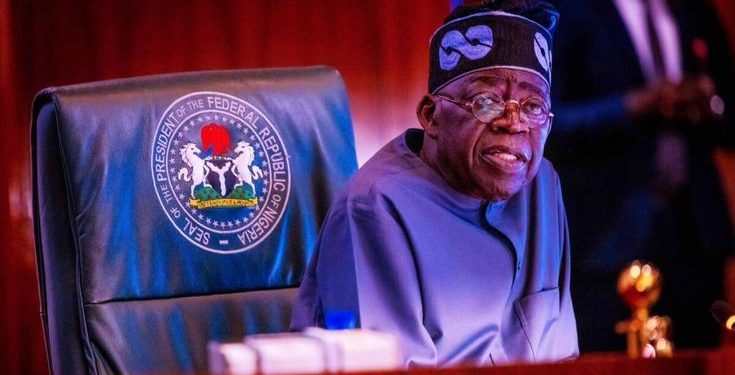President Bola Ahmed Tinubu has defended his administration’s decision to exempt the Federal Capital Territory (FCT) from the Treasury Single Account (TSA), emphasizing that the move was necessary to accelerate development and enhance governance in the nation’s capital.
Speaking on Sunday at the Presidential Villa in Abuja during a Sallah homage visit led by FCT Minister Nyesom Wike, President Tinubu stated that the bureaucratic constraints associated with the TSA had hindered infrastructure expansion and other essential projects in the capital.
“The FCT Minister came to me and said, ‘Please take us out of the problem of the TSA so that I can do more work and achieve more.’ He presented his plans, and I saw the vision behind them,” Tinubu said. “Since then, we have witnessed rapid transformations – rural areas opening up, abandoned projects being completed, and significant improvements in healthcare and education.”
The President noted that removing the FCT from the TSA had led to faster completion of projects such as the long-abandoned official residence of the Vice President, the rehabilitation of healthcare centers, and the provision of better educational facilities.
He commended Wike for restructuring the FCT administration to allow civil servants to aspire to higher positions and contribute effectively to governance. Tinubu also encouraged Nigerians to prioritize competence and results over ethnic and religious affiliations when choosing leaders.
Background: FCT and the TSA Policy
The Treasury Single Account (TSA) is a public financial management reform introduced by the Nigerian government to consolidate all government revenues into a single account at the Central Bank of Nigeria (CBN). The policy, aimed at improving transparency and reducing financial leakages, was fully implemented in 2015 under former President Muhammadu Buhari.
As part of this policy, government ministries, departments, and agencies (MDAs) were mandated to remit all revenues into the TSA, limiting their ability to access and utilize funds independently. While the system improved accountability, it also slowed down financial transactions, particularly in sectors requiring quick access to funds for infrastructure and service delivery.
The FCT, as Nigeria’s capital, was initially subject to the TSA policy, meaning its funds had to be routed through the central account before expenditure. However, under Tinubu’s administration, the exemption of the FCT from the TSA is expected to grant the territory more financial autonomy, enabling faster execution of developmental projects.























































